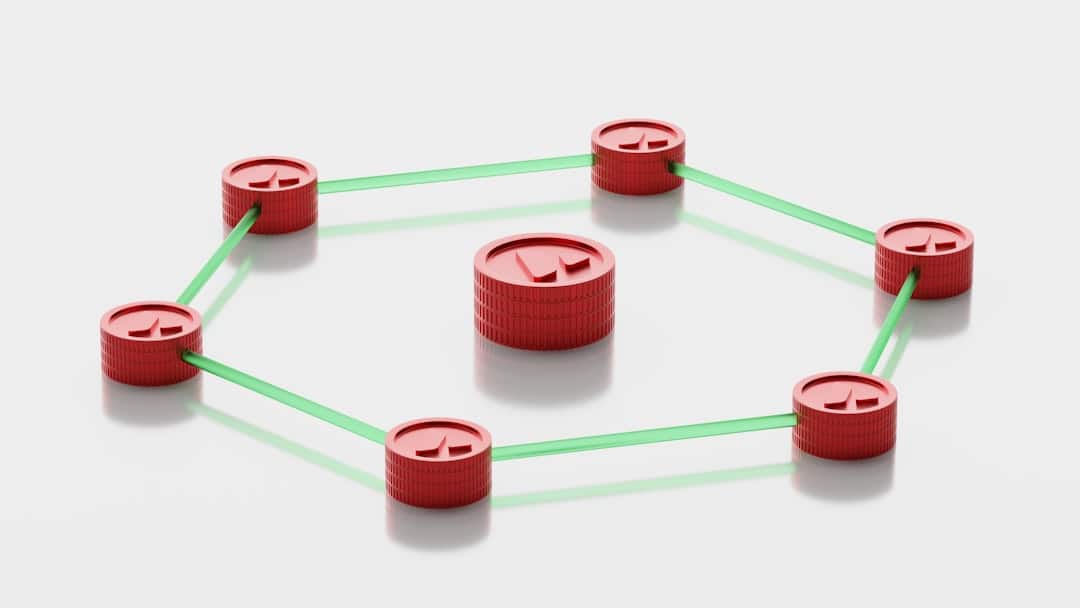A decentralized Virtual Private Network (VPN) is an innovative approach to online privacy and security that leverages a distributed network of nodes rather than relying on a centralized server infrastructure. In traditional VPNs, users connect to a single server operated by a service provider, which can potentially monitor user activity and store logs. In contrast, decentralized VPNs utilize a peer-to-peer architecture, where users can share their internet connections with others, creating a network that is less susceptible to censorship and surveillance.
This model not only enhances privacy but also promotes a more resilient and robust network structure. The decentralized nature of these VPNs means that no single entity has control over the entire network. Instead, users contribute their bandwidth and resources, allowing for a more democratic and community-driven approach to internet access.
This can be particularly beneficial in regions where internet access is heavily regulated or restricted. By distributing the network across numerous nodes, decentralized VPNs can provide users with greater anonymity and security, as their data is not funneled through a single point that could be compromised or monitored.
Key Takeaways
- A decentralized VPN is a network that allows users to access the internet securely and privately by connecting to a distributed network of servers, rather than a centralized server.
- Securing personal browsing data is important to protect against surveillance, hacking, and data theft, as well as to maintain privacy and anonymity online.
- Decentralized VPNs work by routing internet traffic through a network of nodes, making it difficult for third parties to intercept or trace the user’s online activity.
- Advantages of using a decentralized VPN include enhanced security, privacy, and anonymity, as well as the ability to bypass censorship and access geo-restricted content.
- Challenges and limitations of decentralized VPNs include potential slower speeds, fewer server options, and the need for technical knowledge to set up and use the network.
The Importance of Securing Personal Browsing Data
The Risks of Exposure
The implications of such exposure can be severe, ranging from targeted advertising to identity theft and other forms of cybercrime. Moreover, the rise of data breaches has underscored the necessity for robust security measures. High-profile incidents involving major corporations have demonstrated that even the most secure systems can be vulnerable to attacks.
Protecting Online Activities
As a result, individuals are increasingly seeking ways to protect their online activities from prying eyes. Utilizing tools like decentralized VPNs can significantly enhance privacy by encrypting internet traffic and masking IP addresses, making it more difficult for third parties to track user behavior.
The Importance of Digital Identity Protection
This level of protection is essential not only for personal safety but also for maintaining the integrity of one’s digital identity in an interconnected world.
How Decentralized VPNs Work

Decentralized VPNs operate on a peer-to-peer model, where users connect directly to one another rather than through a centralized server. This architecture allows users to share their internet connections with others in the network, effectively creating a mesh of interconnected nodes. When a user connects to a decentralized VPN, their data is routed through multiple nodes before reaching its final destination.
This process not only obscures the user’s original IP address but also distributes the data across various points in the network, enhancing security. The technology behind decentralized VPNs often employs blockchain or similar distributed ledger technologies to facilitate secure connections and transactions between users. For instance, some decentralized VPNs utilize smart contracts to manage user interactions and ensure that bandwidth sharing is conducted fairly and transparently.
This not only incentivizes users to contribute their resources but also establishes trust within the network. Additionally, many decentralized VPNs incorporate encryption protocols that safeguard data in transit, further bolstering user privacy and security.
Advantages of Using a Decentralized VPN
One of the primary advantages of decentralized VPNs is their enhanced privacy features. Since there is no central authority controlling the network, users are less likely to have their data logged or monitored. This makes it significantly more challenging for third parties to track online activities or identify users based on their browsing habits.
Furthermore, the distributed nature of these networks means that even if one node is compromised, the overall integrity of the network remains intact. Another notable benefit is the resilience against censorship. In many regions around the world, access to certain websites or online services is restricted by government regulations or corporate policies.
Decentralized VPNs can help circumvent these barriers by allowing users to connect through various nodes located in different jurisdictions. This capability not only promotes freedom of information but also empowers individuals to access content that may otherwise be unavailable due to geographical restrictions. Additionally, the community-driven aspect of decentralized VPNs fosters collaboration among users, creating a sense of shared responsibility for maintaining an open and accessible internet.
Challenges and Limitations of Decentralized VPNs
Despite their numerous advantages, decentralized VPNs are not without challenges and limitations.
Since these networks rely on user-contributed bandwidth, connection speeds can vary widely depending on the number of active nodes and their respective capacities.
Users may experience slower speeds or increased latency compared to traditional VPNs that utilize dedicated servers optimized for performance. Another challenge lies in the complexity of setup and usage. Many decentralized VPNs require a certain level of technical knowledge to install and configure properly.
This can deter less tech-savvy individuals from utilizing these services, limiting their accessibility. Additionally, while decentralization enhances privacy, it can also complicate accountability. In cases where malicious activities occur within the network, identifying responsible parties can be difficult due to the anonymity afforded by the system.
Comparison with Traditional VPNs

Traditional VPNs: Ease of Use and Centralized Control
Traditional VPNs typically offer a straightforward user experience with dedicated servers that are easy to connect to and manage.
Decentralized VPNs: Prioritizing User Privacy
In contrast, decentralized VPNs eliminate central control over data flow, reducing the risk of data breaches associated with centralized servers. This architecture inherently reduces the risk of data logging and potential surveillance by the service provider.
Comparing Features and Performance
Traditional VPNs often provide robust encryption protocols and additional features such as kill switches and split tunneling that may not be as readily available in all decentralized options. However, decentralized VPNs may offer more flexibility and customization options, making them a better choice for users who value privacy and control.
How to Choose a Decentralized VPN Provider
Selecting a suitable decentralized VPN provider requires careful consideration of several factors to ensure optimal performance and security. First and foremost, users should evaluate the provider’s reputation within the community. Researching user reviews and feedback can provide valuable insights into the reliability and effectiveness of the service.
Additionally, transparency regarding data handling practices is crucial; reputable providers should clearly outline their policies on logging and user privacy. Another important aspect to consider is the technology used by the provider. Some decentralized VPNs leverage blockchain technology for enhanced security and accountability, while others may utilize different protocols or frameworks.
Understanding these technical details can help users make informed decisions based on their specific needs and preferences. Furthermore, assessing the ease of use and compatibility with various devices is essential; a user-friendly interface can significantly enhance the overall experience.
The Future of Decentralized VPNs
The future of decentralized VPNs appears promising as awareness of online privacy issues continues to grow among consumers worldwide. As more individuals seek alternatives to traditional internet service models that prioritize user control and security, decentralized solutions are likely to gain traction. Innovations in blockchain technology may further enhance the capabilities of these networks, enabling faster connections and improved security features.
Moreover, as governments around the globe grapple with issues related to internet censorship and surveillance, decentralized VPNs could play a pivotal role in promoting digital freedom. The ability to bypass restrictions while maintaining anonymity will likely attract users from regions with oppressive internet policies. As this trend continues to evolve, we may witness an increasing number of decentralized applications emerging across various sectors beyond just VPN services, further solidifying their place in the digital landscape.
In conclusion, while challenges remain in terms of performance consistency and user accessibility, the advantages offered by decentralized VPNs make them an appealing option for those seeking enhanced privacy and security online. As technology advances and public awareness grows, these networks are poised to become an integral part of the future internet ecosystem.
If you’re interested in staying up to date with the latest trends, you may want to check out this article on Top Trends on TikTok 2023. It discusses the upcoming trends on the popular social media platform. Additionally, if you’re involved in e-commerce, you might find this article on Top Trends in E-Commerce Business to be informative and helpful. And for those looking to remodel their homes, you can discover the best free software for home remodeling in this article Discover the Best Free Software for Home Remodeling Today.
FAQs
What is a decentralized VPN?
A decentralized VPN is a virtual private network that operates on a peer-to-peer network, allowing users to connect directly to one another without the need for a central server.
How does a decentralized VPN secure personal browsing data?
Decentralized VPNs use encryption and distributed network architecture to secure personal browsing data. This means that user data is fragmented and distributed across multiple nodes, making it difficult for any single entity to access or intercept the data.
What are the benefits of using a decentralized VPN?
Some benefits of using a decentralized VPN include enhanced privacy, security, and anonymity. Decentralized VPNs also offer greater resistance to censorship and surveillance compared to traditional VPNs.
Are there any drawbacks to using a decentralized VPN?
One potential drawback of using a decentralized VPN is that it may be less user-friendly and have slower connection speeds compared to centralized VPNs. Additionally, the decentralized nature of these VPNs may make it more challenging to troubleshoot technical issues.
How do decentralized VPNs differ from traditional VPNs?
Traditional VPNs rely on centralized servers to route and encrypt internet traffic, while decentralized VPNs operate on a peer-to-peer network without a central server. This decentralized approach offers greater privacy and security benefits.

